Mebex 100 mg is one of the widely used antiparasitic medications that is formulated with the active ingredient mebendazole. This medication is primarily prescribed in order to treat various parasitic worm infections that affect the gastrointestinal tract. Understanding its uses, its dosage, potential side effects that it has, and any other necessary precautions is very crucial for its effective and safe treatment.
What is Mebex 100 mg?
Mebex 100 mg is mainly an anthelmintic medication that contains mebendazole, which is a broad-spectrum antiparasitic agent. It is highly effective against a wide range of helminthic infections, also including those that are caused by pinworms, roundworms, whipworms, and hookworms. The medication mainly works by inhibiting the worms’ ability to absorb glucose, thus leading to severe energy depletion and the eventual death of the parasites.
Uses of Mebex 100 mg
Mebex 100 mg is mainly prescribed for the treatment of several parasitic infections:
- Pinworm Infection (Enterobiasis): which is caused by Enterobius vermicularis, which commonly affects children.
- Roundworm Infection (Ascariasis): this is caused due to Ascaris lumbricoides, thus leading to severe malnutrition and intestinal blockage.
- Whipworm Infection (Trichuriasis): This is caused by Trichuris trichiura, mainly affecting the large intestine.
- Hookworm Infection (Ancylostomiasis): This is also caused by Ancylostoma duodenale or Necator americanus, thus leading to anemia.
- Other Helminthic Infections: Including giardiasis, filariasis, toxocariasis, and hydatid disease.
Dosage and Administration
The dosage of Mebex 100 mg highly depends on the type and severity of the infection:
- Pinworm Infection: A single 100 mg dose is enough in most cases; a second dose may be administered after two weeks in order to prevent further reinfection.
- Other Infections: Typically, 100 mg of the dose is taken twice daily for three consecutive days for other infections.
Administration Guidelines:
- It is advisable to swallow the tablet whole with water; do not crush or chew.
- The tablet can be taken with or without food; however, taking it with fatty meals may enhance its absorption .
- It is also important that you maintain proper hygiene to prevent reinfection, including regular hand washing and cleaning of personal items as well.
Side Effects
While Mebex 100 mg is generally quite well-tolerated, some individuals may at times experience certain side effects:
Common Side Effects include:
- Abdominal pain
- Diarrhea
- Nausea and vomiting
- Loss of appetite
- Headache
Rare but Serious Side Effects:
- Skin rash or hives
- Hair loss
- Fever and sore throat
- Dizziness
- Joint or muscle pain
- Decrease in white blood cell count
- Liver function abnormalities
It is important that you seek immediate medical attention if you experience any signs of a severe allergic reaction, such as swelling of the face, lips, or tongue, or difficulty breathing.
Precautions and Warnings
Pregnancy and Breastfeeding:
- Mebex 100 mg is not at all recommended during pregnancy unless it is clearly necessary.
- Caution is advised when administering this medication to breastfeeding women, as mebendazole may pass into the breast milk .
Liver Conditions:
- It is advisable to use this medication with caution in patients who are dealing with liver disease, as mebendazole is highly metabolized in the liver and may exacerbate the hepatic conditions .
Children:
- This medication is not at all recommended for children who are under 2 years of age unless it is prescribed by a healthcare professional .
Drug Interactions:
- Also it is important that you inform your doctor about all medications that you are taking, as Mebex 100 mg can highly interact with these drugs such as cimetidine, metronidazole, phenytoin, and carbamazepine, thus potentially increasing the risk of its side effects .
Storage Instructions
- Store at room temperature below 30°C.
- Keep away from direct sunlight and moisture.
- Keep out of reach of children.
Conclusion
Mebex 100 mg is a highly effective treatment for various parasitic worm infections. When used as prescribed by the healthcare practitioner and accompanied by proper hygiene practices, it can significantly alleviate symptoms and thus prevent reinfection. Also it is important that you always consult a healthcare professional before starting any medication in order to ensure that it is appropriate for your specific condition that you are trying to cure.
FAQs
1. What is Mebex 100 mg used for?
Answer:
Mebex 100 mg is primarily used to treat intestinal worm infections, including pinworms, roundworms, whipworms, and hookworms. It works by inhibiting the parasites’ glucose uptake, leading to their death and expulsion from the body. It may also be used off-label for other helminthic infections under medical supervision.
2. Is Mebex 100 mg safe for children?
Answer:
Yes, Mebex 100 mg can be safely used in children over 2 years of age, but only under the supervision of a healthcare provider. The dosage might vary based on the child’s age, weight, and the specific type of worm infection. It is not recommended for infants under 2 years without explicit medical advice.
3. Can Mebex 100 mg be taken on an empty stomach?
Answer:
Yes, Mebex 100 mg can be taken with or without food. However, taking it with fatty foods may increase its absorption and effectiveness. For best results, follow your doctor’s instructions regarding timing and dietary recommendations.
4. How long does Mebex 100 mg take to work?
Answer:
Most people begin to notice improvement within a few days of starting Mebex 100 mg. However, for complete eradication of the infection and to avoid reinfection, the full course should be completed as prescribed. In some cases, a second dose after 2 weeks is recommended to ensure all parasites are cleared.
5. What should I do if I miss a dose of Mebex 100 mg?
Answer:
If you miss a dose, take it as soon as you remember. If it’s almost time for your next dose, skip the missed one and continue your regular schedule. Do not double the dose to make up for a missed one. Always consult your healthcare provider if you’re unsure about dosage adjustments.
Here are 5 more frequently asked questions
6. Can I take Mebex 100 mg during pregnancy?
Answer:
Mebex 100 mg is not recommended during pregnancy, especially in the first trimester, unless clearly advised by a healthcare provider. Animal studies have shown potential risks to the fetus, and its safety in pregnant women has not been fully established. Always consult your doctor before using any medication during pregnancy.
7. Can Mebex 100 mg be used for deworming as a preventive measure?
Answer:
Yes, in many countries, Mebex is used periodically for preventive deworming, especially in school-aged children and in areas where worm infestations are common. However, such preventive use should always follow public health guidelines or a doctor’s recommendation to avoid overuse or resistance.
8. What precautions should I take while on Mebex 100 mg?
Answer:
While taking Mebex 100 mg:
- Maintain good hygiene, such as washing hands before eating and after using the toilet.
- Wash bed linens, underwear, and towels daily.
- Ensure all household members are treated simultaneously to prevent reinfection, especially in pinworm cases.
- Avoid alcohol if your doctor advises caution due to potential liver load.
9. Can I drink alcohol while taking Mebex 100 mg?
Answer:
While there is no direct interaction between Mebex and alcohol, it’s generally advisable to avoid alcohol during treatment. This is because both alcohol and Mebex are metabolized in the liver, and using them together could stress the liver, especially with prolonged or high doses.
10. Is Mebex 100 mg effective for tapeworm infections?
Answer:
Mebex 100 mg has limited effectiveness against tapeworms (Taenia species). In some cases, higher or prolonged doses may be used, or other antiparasitic agents like praziquantel or albendazole may be preferred. Your doctor will choose the most appropriate treatment based on the type of worm identified.

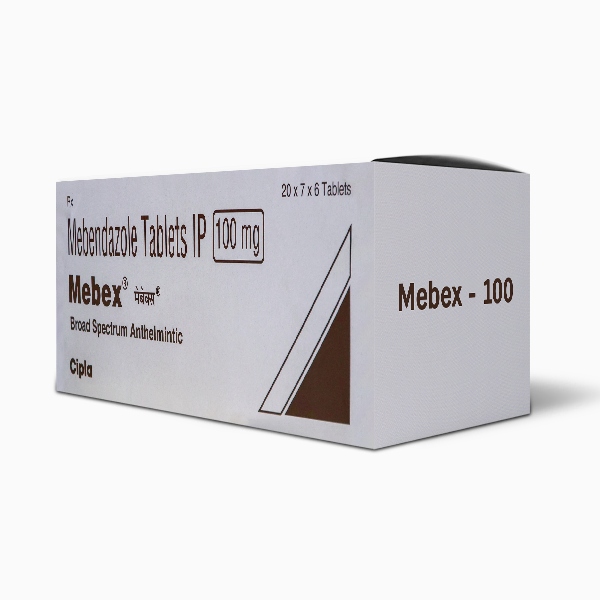
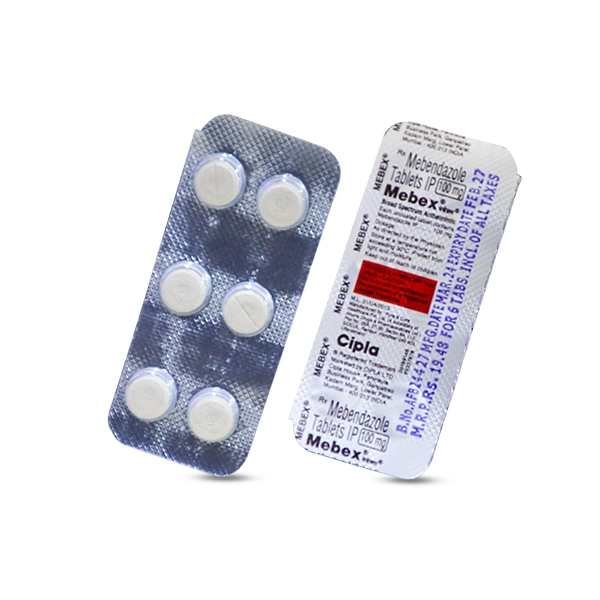
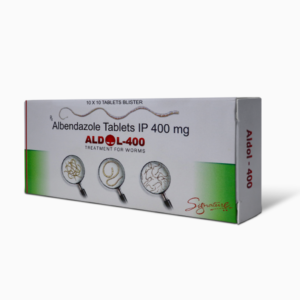


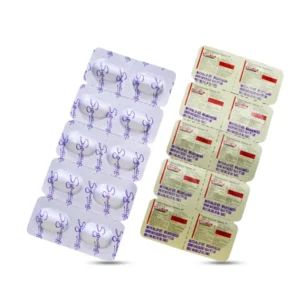
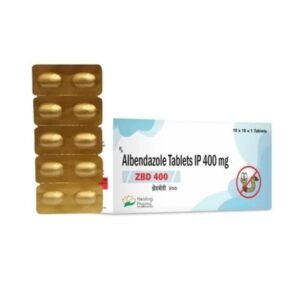
Reviews
There are no reviews yet.